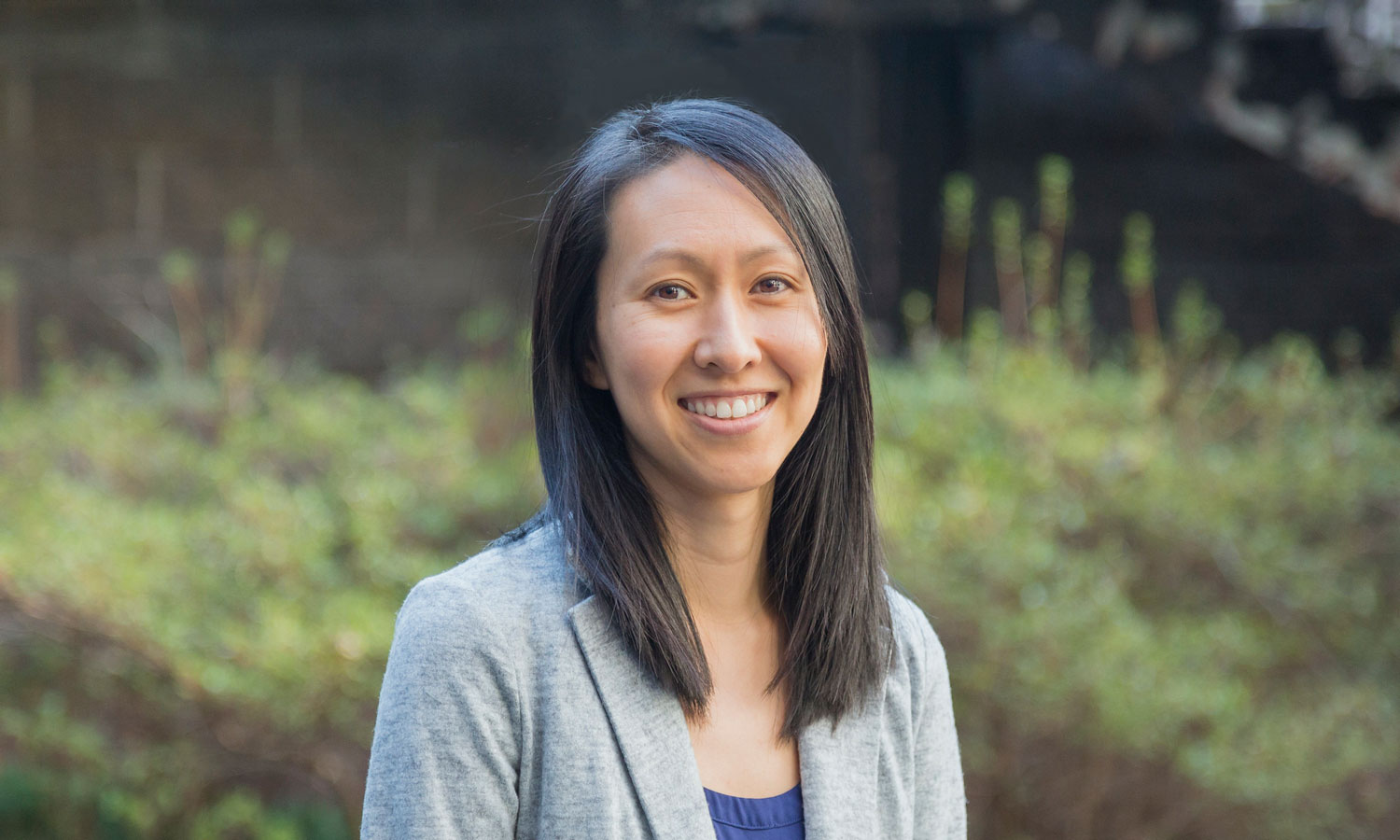Priscilla Hwang, Ph.D., an assistant professor in the Department of Biomedical Engineering, has received a Faculty Early Development (CAREER) Award from the National Science Foundation (NSF) for 2022. This is the NSF’s most prestigious award given to junior faculty who most effectively integrate research and education.
Hwang received the honor for her research on how cells in the body cluster together and migrate as a group. Much is unknown about how and why this occurs.
This process, called collective migration, is behind the healthy development of many tissues. When wounds heal, for example, cells often gather together and migrate as a “sheet” to help close the wound.
Collective migration of cells is not always a good thing, however. Cancer cells, for example, tend to break away from the original tumor and travel as a group to form new tumors in other organs or tissues. This often-deadly form of collective migration is called metastasis.
To better understand the collective migration process, Hwang will investigate the role of a subset of cells called leader cells. These cells move to the front and guide the migration of groups of cells.
Researchers know that leader cells receive signals from their surroundings and send signals to other cells in the group so they can all move together. But little is understood about how and why certain cells become leaders and how they move to the front.
“If we can understand why [leader cells] have this unique position and function, then we can develop therapies that target the leader cells,” she said.
Hwang will study how leader cells polarize to the front of the cell cluster. She will also investigate whether leader cells are mechanically connected, and how mechanical forces between leader cells initiate and sustain collective migration.
Her central hypothesis is that leader cells move to the edge through increased adhesions in the direction of the flow of the fluid found in the spaces around cells. She also hypothesizes that forces generated by the cells sustain their directed collective migration.
Hwang and her research group will test these hypotheses using a novel, in vitro, 3D “lab-on-a-chip” system that mimics the features of living tissues. The researchers will place live cells on this tiny device and observe in real time how the cells respond to chemical factors, fluid flow and other conditions cells would normally experience in the body.
Knowing how leader cells function will expand understanding of collective migration-driven developmental processes. It will also provide a new perspective for developing new therapies that target abnormalities or disease progression that occur when these migrations go awry.
The NSF CAREER Award will also support Hwang’s ongoing work to recruit, mentor and retain a diverse array of students — including women, underrepresented minorities and first-generation college students — into STEM fields. These efforts include hands-on activities for K-12 students, teachers, undergraduates and families through VCU Engineering’s Explore and Tour events, Innovation Days and Early Engineers programs.
